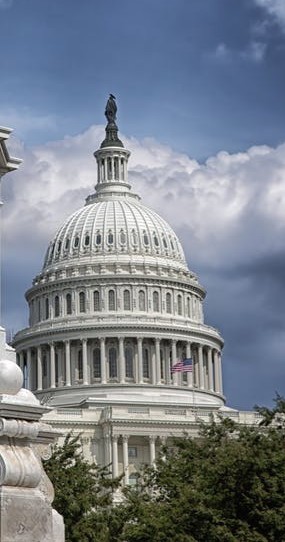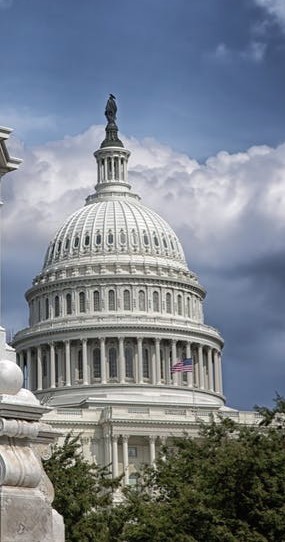
Senate Passes Changes to Dodd-Frank
Published on February 16, 2024
 In a 67-31 vote yesterday, the Senate passed a measure which would make significant changes to the Dodd-Frank Wall Street reform law of 2010. The bill now moves to the House of Representatives.
In a 67-31 vote yesterday, the Senate passed a measure which would make significant changes to the Dodd-Frank Wall Street reform law of 2010. The bill now moves to the House of Representatives.
Sponsored by Senate Banking Committee Chairman Mike Crapo (R-ID), this bill addresses Dodd-Frank’s impact on small banks and credit unions. Those backing this new bill argue it would free small banks from unnecessary rules and would help boost investment in struggling communities. Critics argue that the bill is a gift to Wall Street wrapped in false claims that it could rescue smaller lenders.
Following the financial crisis/panic of 2008, Dodd-Frank was intended to increase transparency by implementing a consistent set of regulations on banks -- large and small. Those regulations aimed to close loopholes and make firms accountable for their mistakes, ensuring that banks that partook in risky investment practices would bear the financial burden of those mistakes. Dodd-Frank promised the end of “too big to fail”.
Despite its efforts, large banking institutions have grown dramatically since the passage of Dodd-Frank, and small community banks have incurred serious losses as they try to keep up with Dodd-Frank regulations.
The Crapo bill releases dozens of banks from tougher Federal Reserve oversight and frees smaller firms from regulations intended to prevent mortgage fraud and discrimination. Banks with less than $250 billion in assets would no longer be subject to yearly Federal Reserve stress tests or higher capital requirements meant to ensure risky firms could weather a lending crisis. Those banks would also be exempt from submitting a “living will” that outlines how a company could be liquidated upon failure without causing a widespread meltdown.
The threshold for tighter Fed regulation is currently set at $50 billion, and the increase would impact major regional banks. In the Carolinas, these include SunTrust, BB&T, and Fifth Third.
The bill also exempts banks that extend 500 or fewer mortgages a year from reporting some home loan data to federal regulators and broadens the definition of qualified mortgages. This alone would give community banks greater flexibility in tailoring home mortgages to the needs of individual borrowers.
Foreign banks with U.S. holdings less than $250 billion but above that level in foreign assets would still be subject to closer oversight. Provisions to force credit bureaus to offer free services for victims of hacks, protect military veterans from fraud, create new student loan backstops, and mandate studies on various risks to the financial system are also part of the bill.
These reforms may seem relatively modest, but they are still controversial. Many believe that any relaxation of Dodd-Frank, especially as it applies to larger banks, will set the country up for another financial crisis. Among the most controversial provisions are alterations in how the supplementary leverage ratio is calculated, whether municipal securities should be included in the definition of “high-quality liquid assets”, and the raising of the definition of a ‘systemically important financial institution’ to $250 billion in assets from the present $50 billion.
Note that the Senate bill does not touch the Consumer Financial Protection Bureau. That would likely be a step too far given the strong support the CFPB has from numerous Senate Democrats.
Crapo’s bill now makes its way to the House, where uncertainty abounds as to whether or not it can pass as written. Many House conservatives are demanding stronger curbs to Dodd-Frank before pledging their support. However, with midterm elections on the horizon, House Republicans could push this reform through quickly in an effort to campaign on a major rollback of President Obama-era rules. The president is likely to sign whatever reform Congress passes.
Pay close attention to Dodd-Frank reforms if you’re in the banking or home mortgage industry. Things have the potential to change quickly.






